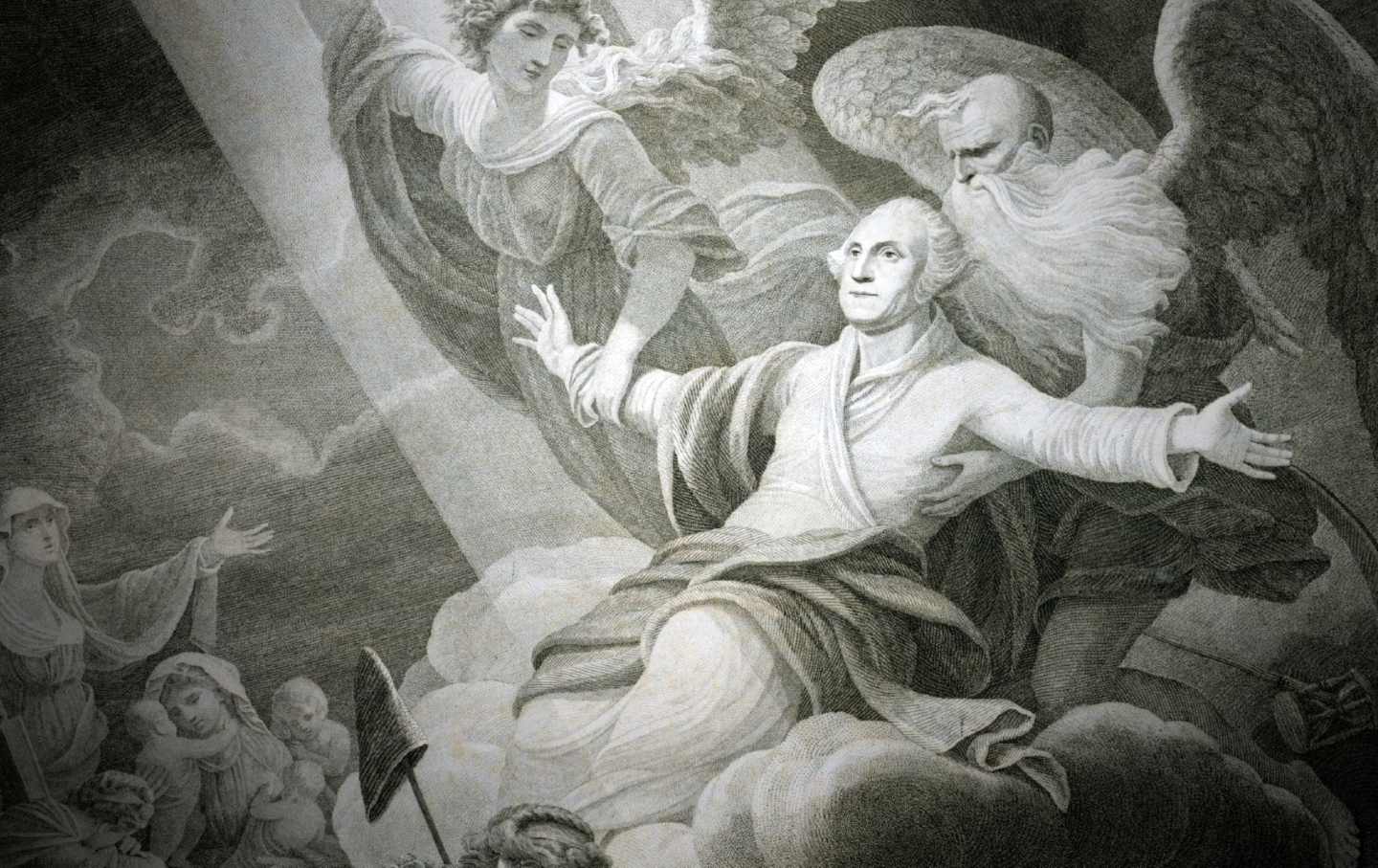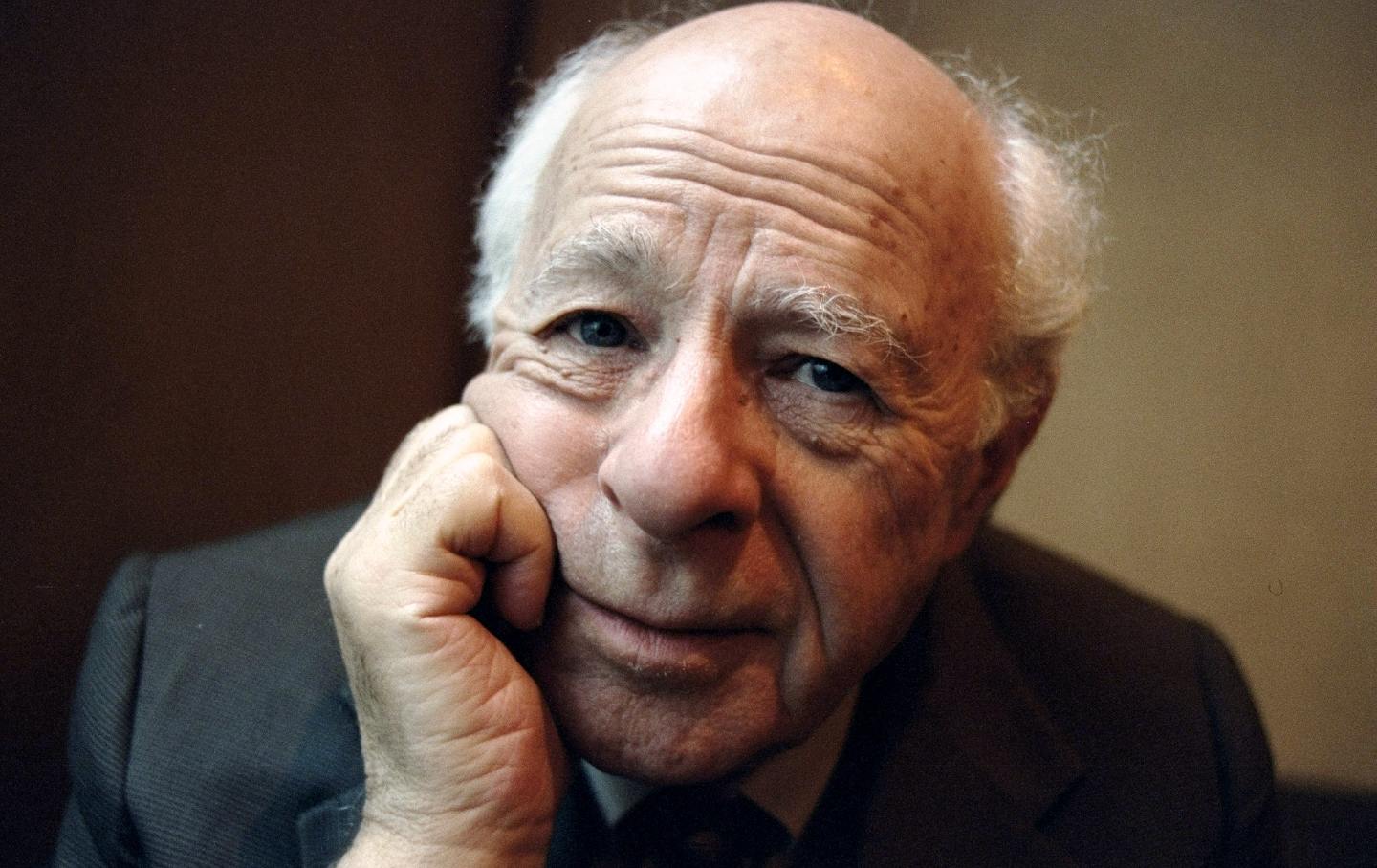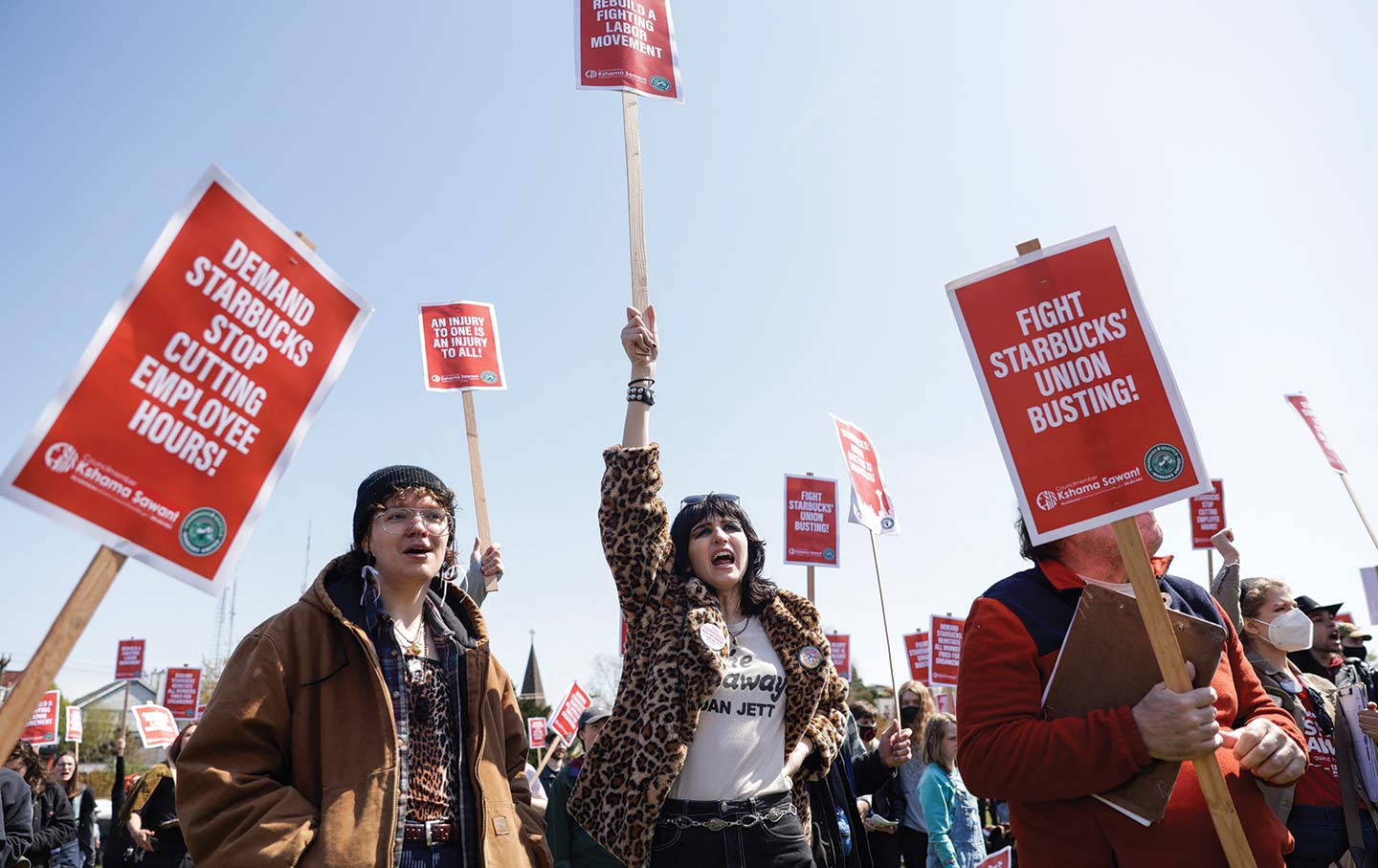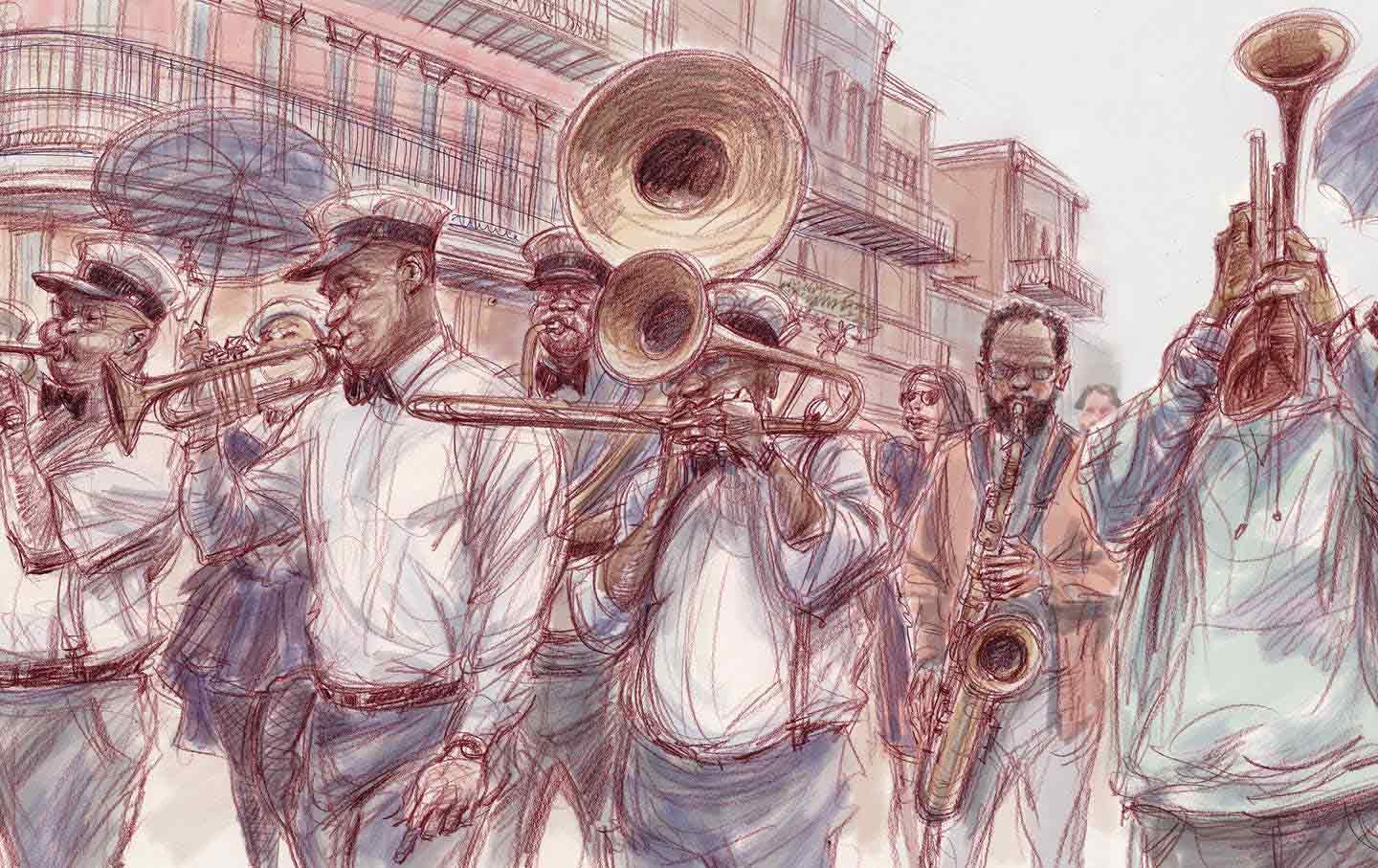When Faith Meets Fascism
Producer Rob Reiner and director Dan Partland discuss the rise of Christian nationalism and their new film God & Country.

Mix religion up with a macho, messianic form of white nationalism, and you get a toxic brew—one that’s dangerous not only to the very idea of secular democracy but also to Christianity itself. History has seen crusades before, but today’s Christian nationalism is posing a real and immediate threat. In God & Country, a new documentary based on the book The Power Worshipers by Katherine Stewart, director Dan Partland and producer Rob Reiner look at the phenomenon of Christian nationalism, with insights from scholars and activists as well as Christian leaders like the Rev. William Barber of the Poor People’s Campaign. Reiner came to fame as an Emmy Award–winning actor in the TV series All in the Family. He went on to become an acclaimed director of some of the most popular motion pictures in American history, including When Harry Met Sally and The Princess Bride. He’s also a dedicated political activist. Dan Partland is a longtime documentary producer and director for film and television. He is a five-time Emmy nominee with two Emmys for best nonfiction series, including one for American High on Fox.
—Laura Flanders
Laura Flanders: I learned a lot from this film. For one thing, the huge role that Christian Nationalists played in the January 6 insurrection. What do we need to know about what happened the night before, January 5?
Dan Partland: The insurrection at the US Capitol on January 6 was basically a Christian nationalist uprising—which is not to say that everybody there was a Christian nationalist, but it was a unifying theme. It wasn’t a coincidence that all of those people were at the Capitol that day. There were churches and a lot of conservative Christian groups organizing protests to bring people to the Capitol on January 5. They had done this a bunch of times prior with something called the Jericho Marches. The idea of the Jericho Marches was to symbolize, in Christian terms, the taking down of the government. The story of Jericho is that the walls come crumbling down. It was well-known, highly publicized within certain Christian circles that the event on the 6th was going to be an effort to block the certification of the election.
LF: American as baseball and apple pie, is it? Christian nationalism?
Rob Reiner: Christianity is certainly a part of the fabric of America. There’s no getting around that. The problem with Christian nationalism is they claim that America should be a Christian nation. That it was founded to be a white Christian nation. We know, based on our Constitution, very clearly there is a separation of church and state. To say that Christian nationalism—which is a political movement, not a religious movement—should be tied into what is American is a little misleading.
LF: What makes the Christian nationalism of today different from the conservative religious movements we’ve known in the past?
DP: The current Christian nationalist movement, which as Rob said is a political movement and not a faith, has become the dominant expression of Christianity in America. That’s what’s really scary. It represents a danger not just to American democracy because of the ways in which they can use both democratic and antidemocratic means to try to implement this Christian agenda into law but also a danger to church itself because of the ways that it’s co-opting the idea of what Christianity is about and undermining the central tenets of the faith.
RR: We have experts in the film, very conservative, devout Christians, leaders, thinkers, pastors, who talk about how this movement is completely antithetical to the teachings of Jesus. That’s what you have to focus in on, because the idea that you could promote a political agenda in the name of God and that would give you permission to resort to any means to get what you want, up to and including violence we saw on January 6, is completely antithetical to the teachings of Jesus, which is love thy neighbor, do unto others, and so on.
LF: How big is this movement?
RR: Christian nationalism, the way we talk about it in the film as this political movement, is not the majority. It is far from the majority. But because of the way our system works, a very virulent minority can control our politics—and that’s what they’ve done. They’ve figured out a way to take this movement, which is very well-funded, very well-organized, much more so than when it started back in the ’50s. They’ve funneled this organization into Donald Trump, and he is their spokesperson for this. You can gain a tremendous amount of power with maybe 20, 25, 30 percent of the populace.
LF: Dan, as you think about the work you hope this film will do, who are you trying to reach?
DP: There’s a lot of people, American Christians, who are starting to really be ill at ease with the overall direction of their political leanings, of their church, of this movement in general. They’ve been swept up in it. So we’re definitely interested in reaching those people, because I think those people are reachable.
RR: We want religious groups, church groups to take a look at it and share it with their flock and talk to each other. How do you feel about this movement? Is it representing true Christianity? We want that discussion to proliferate. We’re seeing the rise of autocracy and theocracy around the world, and it’s a clarion call to say this can happen here. If democracy crumbles, then it portends a danger throughout the world.
LF: There is something about evangelicalism that I respect, which is that within certain boundaries they do believe that people can be changed, saved, rescued, converted.
DP: It’s wrong to think of Christian nationalism as a light switch that’s either on or off. You’re a Christian nationalist, you’re not. The way most of the scholarship views this is really a spectrum. Some of the best research on this classifies groups ranging from what they call ambassadors of Christian nationalism, who firmly believe this is a Christian nation and should be reflected that way in law. The next tier is accommodators, resisters, and then rejectors. In this top class of ambassadors, those are probably most of the people we’re talking about when we say Christian nationalists. This may be as much as 20 percent of the population. That’s a huge number, 20 percent who have deeply held beliefs that the United States is and should officially be a Christian nation and are looking to write that into law. That’s the population that we have to be worried about.
What makes it so difficult to address is that when you consider the next tier, people who you’d call accommodators of Christian nationalism or even resisters, now you’re talking about almost two-thirds to three-quarters of the country have at least some bit of Christian nationalist belief. Some of it is fine, of course—“This is basically a Christian nation.” There’s a background of Christianity throughout the history of this republic. The sort of benign ways that it starts, which is just recognizing that there’s a lot of Christian people here, quickly becomes a slippery slope with this casual language of, “The United States is basically a Christian nation.” What does that mean? We have to draw that bright line again between the separation of church and state, which is a foundational American principle, which I cannot believe in the year 2024 is becoming fuzzy to people.
RR: You’re never going to get to that hard-core group of Christian nationalists that just believe it. and you can’t convince them. It’s those other layers that Dan talked about. If you can get to those people to make them understand that this is destroying their faith, that’s the way I think you can undo it. There’s all kinds of pie-in-the-sky things like getting rid of the Electoral College, which would actually make us more democratic and majority rule. There are a lot of safeguards for the minority to make sure that they’re not run over roughshod by the majority. But when that minority gets too much power, then they’re running roughshod over the majority. You hear this every four years, that this is the greatest and most important election in our lifetime. This one actually is: Democracy is on the ballot. Joe Biden has made that case. We have a choice here, and it’s a very stark choice. We can either choose to continue this wonderful experiment or take a big step towards destroying it. To me, 2024 is the key. I believe that Americans, at the end of the day, are going to choose democracy over autocracy. I have to believe that.
Disobey authoritarians, support The Nation
Over the past year you’ve read Nation writers like Elie Mystal, Kaveh Akbar, John Nichols, Joan Walsh, Bryce Covert, Dave Zirin, Jeet Heer, Michael T. Klare, Katha Pollitt, Amy Littlefield, Gregg Gonsalves, and Sasha Abramsky take on the Trump family’s corruption, set the record straight about Robert F. Kennedy Jr.’s catastrophic Make America Healthy Again movement, survey the fallout and human cost of the DOGE wrecking ball, anticipate the Supreme Court’s dangerous antidemocratic rulings, and amplify successful tactics of resistance on the streets and in Congress.
We publish these stories because when members of our communities are being abducted, household debt is climbing, and AI data centers are causing water and electricity shortages, we have a duty as journalists to do all we can to inform the public.
In 2026, our aim is to do more than ever before—but we need your support to make that happen.
Through December 31, a generous donor will match all donations up to $75,000. That means that your contribution will be doubled, dollar for dollar. If we hit the full match, we’ll be starting 2026 with $150,000 to invest in the stories that impact real people’s lives—the kinds of stories that billionaire-owned, corporate-backed outlets aren’t covering.
With your support, our team will publish major stories that the president and his allies won’t want you to read. We’ll cover the emerging military-tech industrial complex and matters of war, peace, and surveillance, as well as the affordability crisis, hunger, housing, healthcare, the environment, attacks on reproductive rights, and much more. At the same time, we’ll imagine alternatives to Trumpian rule and uplift efforts to create a better world, here and now.
While your gift has twice the impact, I’m asking you to support The Nation with a donation today. You’ll empower the journalists, editors, and fact-checkers best equipped to hold this authoritarian administration to account.
I hope you won’t miss this moment—donate to The Nation today.
Onward,
Katrina vanden Heuvel
Editor and publisher, The Nation








